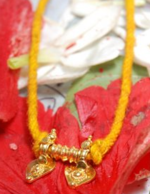| Revision as of 15:54, 29 April 2019 editSitush (talk | contribs)Autopatrolled, Extended confirmed users, Page movers, File movers, Pending changes reviewers, Rollbackers260,192 edits Reverted to revision 883417098 by Sitush (talk): Last best version - far too much of the subsequent changes are unsourced (TW)Tag: Undo← Previous edit | Revision as of 00:41, 5 May 2019 edit undoHighpeaks35 (talk | contribs)Extended confirmed users13,264 edits copy editNext edit → | ||
| Line 1: | Line 1: | ||
| {{merge|Pushpaka|discuss=Talk:Pushpaka#Proposed merge with Pushpaka Brahmin|date=February 2018}} | {{merge|Pushpaka|discuss=Talk:Pushpaka#Proposed merge with Pushpaka Brahmin|date=February 2018}} | ||
| ⚫ | '''Pushpaka Brahmin''' is a generic term that refer to a group of various ] ] castes of ] in the ] community.<ref>{{cite book|url=https://books.google.com/books?id=JmjaAAAAMAAJ&q=puspakar |title=Polity, Society, and Women: With Special Reference to Travancore, 1700-1900 A.D. |first=Suma |last=Rose |publisher=Carmel International Publishing House |year=2004 |page=217 |isbn=9788187655374 |accessdate=2013-04-30}}</ref> Pushpaka Brahmin include primarily two castes - ] (or Pushpaka Unnis) and ], who were assigned the job of tending flowers and making garlands in the Hindu temples and were given rights to teach sacred texts and Sanskrit language in the Pathasalas associated with Hindu temples. Later some other communities like Theeyatt Unnis, Kurukkals, |
||
| ] | ] | ||
| ⚫ | '''Pushpaka Brahmin''' is a generic term that refer to a group of various ] ] castes of ] in the ] community.<ref>{{cite book|url=https://books.google.com/books?id=JmjaAAAAMAAJ&q=puspakar |title=Polity, Society, and Women: With Special Reference to Travancore, 1700-1900 A.D. |first=Suma |last=Rose |publisher=Carmel International Publishing House |year=2004 |page=217 |isbn=9788187655374 |accessdate=2013-04-30}}</ref> Pushpaka Brahmin include primarily two castes - ] (or Pushpaka Unnis) and ], who were assigned the job of tending flowers and making garlands in the Hindu temples and were given rights to teach sacred texts and Sanskrit language in the Pathasalas associated with Hindu temples. Later some other communities like Theeyatt Unnis, Kurukkals, and Puppallis. having similar culture and temple-related jobs were also considered to be Pushpaka Brahmins.<ref>{{cite book |title=Report of the Commission for Reservation of Seats in Educational Institutions, Kerala, 1965 |date=1965 |publisher=Commission for Reservation of Seats in Educational Institutions |location=Kerala}}</ref> | ||
| ==Community welfare== | ==Community welfare== | ||
| Nowadays, Pushpaka Brahmins are reluctant to cling to their traditional professions like priesthood<ref>{{cite news |title=62 Priests to Travancore Devaswam Board |url=https://www.manoramaonline.com/news/kerala/06pta-tdb-poojari-list.html# |publisher=Malayala Manorama|language=Malayalam}} Quote:തിരുവിതാംകൂർ ദേവസ്വം ബോർഡ് ക്ഷേത്രങ്ങളിലേക്ക് 62 ശാന്തിക്കാർ കൂടി - നായർ, വാരിയർ, മാരാർ, പുഷ്പകർ എന്നീ വിഭാഗങ്ങളിൽനിന്ന് ആരുമില്ല.</ref>, teaching (in Pathasalas), malakettu (garland making), vilakkeduppu (lamp bearing) |
Nowadays, Pushpaka Brahmins are reluctant to cling to their traditional professions like priesthood<ref>{{cite news |title=62 Priests to Travancore Devaswam Board |url=https://www.manoramaonline.com/news/kerala/06pta-tdb-poojari-list.html# |publisher=Malayala Manorama|language=Malayalam}} Quote:തിരുവിതാംകൂർ ദേവസ്വം ബോർഡ് ക്ഷേത്രങ്ങളിലേക്ക് 62 ശാന്തിക്കാർ കൂടി - നായർ, വാരിയർ, മാരാർ, പുഷ്പകർ എന്നീ വിഭാഗങ്ങളിൽനിന്ന് ആരുമില്ല.</ref>, teaching (in Pathasalas), ''malakettu'' (garland making), ''vilakkeduppu'' (lamp bearing). due to low income from these professions. ] is an organisation working for the welfare of Pushpakabrahmin castes.{{cn|date=January 2019}} | ||
| ==References== | ==References== | ||
Revision as of 00:41, 5 May 2019
| It has been suggested that this article be merged with Pushpaka. (Discuss) Proposed since February 2018. |

Pushpaka Brahmin is a generic term that refer to a group of various Hindu Brahmin castes of Kerala in the Ambalavasi community. Pushpaka Brahmin include primarily two castes - Pushpakas (or Pushpaka Unnis) and Nambeesanas, who were assigned the job of tending flowers and making garlands in the Hindu temples and were given rights to teach sacred texts and Sanskrit language in the Pathasalas associated with Hindu temples. Later some other communities like Theeyatt Unnis, Kurukkals, and Puppallis. having similar culture and temple-related jobs were also considered to be Pushpaka Brahmins.
Community welfare
Nowadays, Pushpaka Brahmins are reluctant to cling to their traditional professions like priesthood, teaching (in Pathasalas), malakettu (garland making), vilakkeduppu (lamp bearing). due to low income from these professions. Sree Pushpakabrahmana Seva Sangham is an organisation working for the welfare of Pushpakabrahmin castes.
References
- Rose, Suma (2004). Polity, Society, and Women: With Special Reference to Travancore, 1700-1900 A.D. Carmel International Publishing House. p. 217. ISBN 9788187655374. Retrieved 2013-04-30.
- Report of the Commission for Reservation of Seats in Educational Institutions, Kerala, 1965. Kerala: Commission for Reservation of Seats in Educational Institutions. 1965.
- "62 Priests to Travancore Devaswam Board" (in Malayalam). Malayala Manorama. Quote:തിരുവിതാംകൂർ ദേവസ്വം ബോർഡ് ക്ഷേത്രങ്ങളിലേക്ക് 62 ശാന്തിക്കാർ കൂടി - നായർ, വാരിയർ, മാരാർ, പുഷ്പകർ എന്നീ വിഭാഗങ്ങളിൽനിന്ന് ആരുമില്ല.